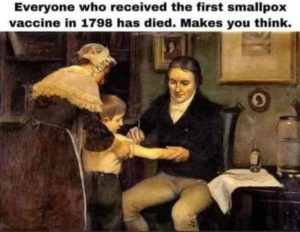In this, the final section of our seminar, I will ask you to draw some personal conclusions about how you, I, or any other citizen should “live within the truth.” As always, I am thinking about “truth” in all of its bountiful manifestations. In terms of citizenship, I am thinking especially of how we are obliged to act in both a flourishing liberal democracy and any other human community.
23. Tuesday, April 27: Power of the Powerless I
What does it mean to live in a lie? The first half of this magnificent essay focuses on what it meant to live in a lie under the sclerotic authoritarian regimes of late communism. In the last few pages, Havel suggests that we may be doing the same thing in advanced democracies.
Vaclav Havel, “The Power of the Powerless.” This essay is in Open Letters. Read Parts I-VI, and XX-XXII
24. Thursday, April 29: Power of the Powerless II
The second half of Havel’s essay challenges us to live within the truth. What does it mean to live within the truth? Why is it difficult to do so? Under what circumstances might we nevertheless be compelled to live within the truth?
Vaclav Havel, “The Power of the Powerless,” Open Letters, Parts VII-XXII.
Don McNeil, “Fauci on What Working with Trump was Really Like,” New York Times, January 25, 2021 PRINT AND READ In my view, Fauci is a classic example of someone aspiring to live within the truth. No easy task for anyone working for a political official, regardless of their party affiliation.
25. Tuesday, May 4: The Challenge of Persuading Others to live within the truth.
A message from Arnold Schwarzenegger about the insurrection in the Capitol building: WATCH
Were it not for the fact that one Republican is attacking his fellow Republicans, we might say this is a very partisan statement. Depending on your personal political views, make of it what you like. I am asking you to watch this video because of what Arnold has to say about 1) the impact of a culture of lies and 2) the Catholic idea of a “servant’s heart.”
Adam Grant, “The Science of Dealing with Unreasonable People” PRINT AND READ
26. Thursday, May 6
Collaborative Class with the Catholic University of Ukraine
“Combating Lies, Disinformation, and Conspiracy Theories on Social Media: Who should do it? To what extent? And How?” The Roles of Politicians, Social Media Platforms, and Journalists
Perspectives from or about the United States:
Three articles about the false claims that the 2020 US Presidential election was fraudulent:
1) The Guardian; 2) WSBTV News (Georgia) 3) National Public Radio: Senate Majority Leader, Mitch McConnell (Republican).
Perspectives from or about Ukraine:
1) Foreign Policy; 2) VOX Ukraine; 3) Internews Ukraine (you may need to use Google translate)
Additional reading (not required): An Atlantic Council report
on Russian interference in the Ukrainian election.
Your Final Essay Assignment is HERE
27. Tuesday, May 11: Truth in the Deepest Sense: Our Fellow Human Beings, Ourselves
For today’s final class, I would like to addresss two questions: 1) What does Truth mean in the deepest and most profound sense of the word; 2) What does this idea of truth tell us about how we should behave.
It will not be obvious how either Amand Gorman’s poem or Emily Scott’s short article relate to Truth, Politics, and Democracy. But “obvious” is a terrible word. Good things are never obvious. Thus, I will challenge you to make sense of both women’s conceptions of the questions above.
Amanda Gorman, “The Hill We Climb”
Emily Scott, “Start looking and you’ll see roads all over the Bible” PRINT AND READ
Please print both of these readings to make the most of our final discussion.
Ω
Ecclesiastes 9:11 “I returned, and saw under the sun, that the race is not to the swift, nor the battle to the strong, neither yet bread to the wise, nor yet riches to men of understanding, nor yet favor to men of skill; but time and chance happen to them all.”
No one ever asks me why I include this passage at the end of all of my Syllabi.
